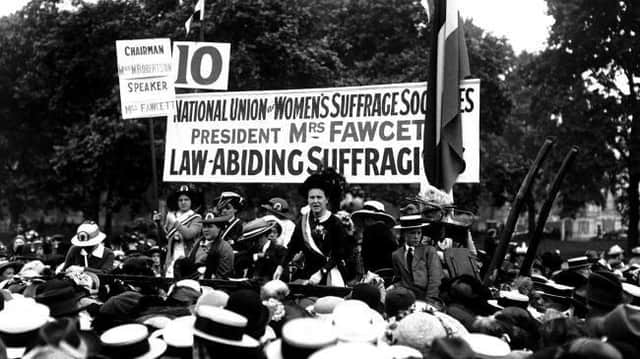The Suffragists: Forgotten pioneers who came before the suffragettes and never once gave up the struggle


It may be because of their publicity seeking actions, or even because of Mary Poppins and the iconic ‘Sister Suffragette’ song. Of course, the suffragettes can never be forgotten because their militant tactics resulted in women’s suffrage being put at the forefront of the political agenda in the early 20th century. Yet, with International Women’s Day occurring tomorrow, it seems right to celebrate the actions of the forgotten suffragists - the National Union of Women’s Social Suffrage - who had been campaigning for female enfranchisement behind the scenes years before the creation of the suffragettes, and never once gave up.
The suffragists were formed in 1897 and their membership skyrocketed to 52,000 by 1914. In contrast to the sometimes-violent suffragettes, they believed in peaceful protest and getting female suffrage by working with the parliamentary system. For example, they lobbied MPs, promoted Private Member’s Bills in favour of women’s suffrage and carried out peaceful demonstrations. Millicent Fawcett, the leader of the suffragists, was even the first woman to debate at the Oxford Union. As a result of all their actions, there was some form of legislative proposal or debate in Parliament ever year prior to WWI regarding female suffrage. They even got male supporters, as they were less polarising than the suffragettes.
Advertisement
Hide AdAdvertisement
Hide AdGranted, these actions may not seem as exciting as the suffragettes, who believed in ‘deeds not words’. They carried out a range of actions from bombing David Lloyd George’s summer house to carrying out hunger strikes. But the suffragists still remained a hugely powerful force in the women’s suffrage campaign. In fact, their strategic and ‘civilised’ actions convinced many males that women were responsible enough to vote. The suffragettes lacked a strategic approach, bombing Lloyd George’s house (a women’s suffrage supporter), which seems somewhat counterproductive.
During the war, while both groups halted their campaigns, the suffragettes gave their up campaigning entirely, becoming patriots and handing out ‘white feathers’ to ‘cowards’. Meanwhile, the suffragists continued their lobbying. Due to their close links with some MPs and the Labour Party, during the Speaker’s Conference in 1918, the suffragists capitalised on the debates about extending male franchise by stating it wrong not to include women too. This put female franchise back on the agenda. So of course, we must always commemorate the suffragettes who catalysed the movement, but never forget the suffragists, who pioneered it.
Comment Guidelines
National World encourages reader discussion on our stories. User feedback, insights and back-and-forth exchanges add a rich layer of context to reporting. Please review our Community Guidelines before commenting.
